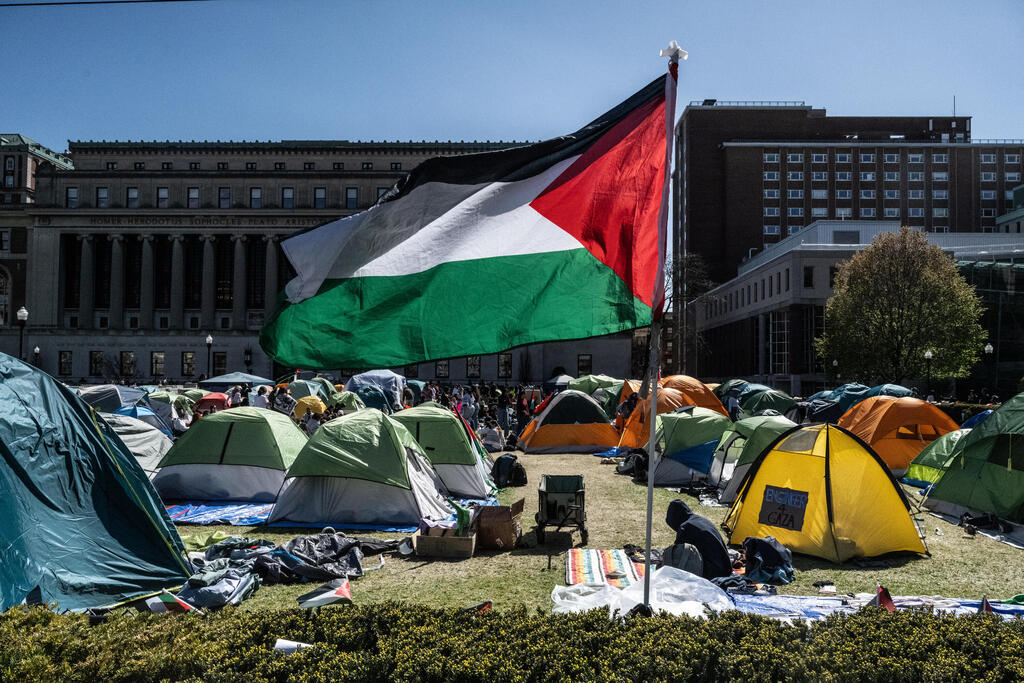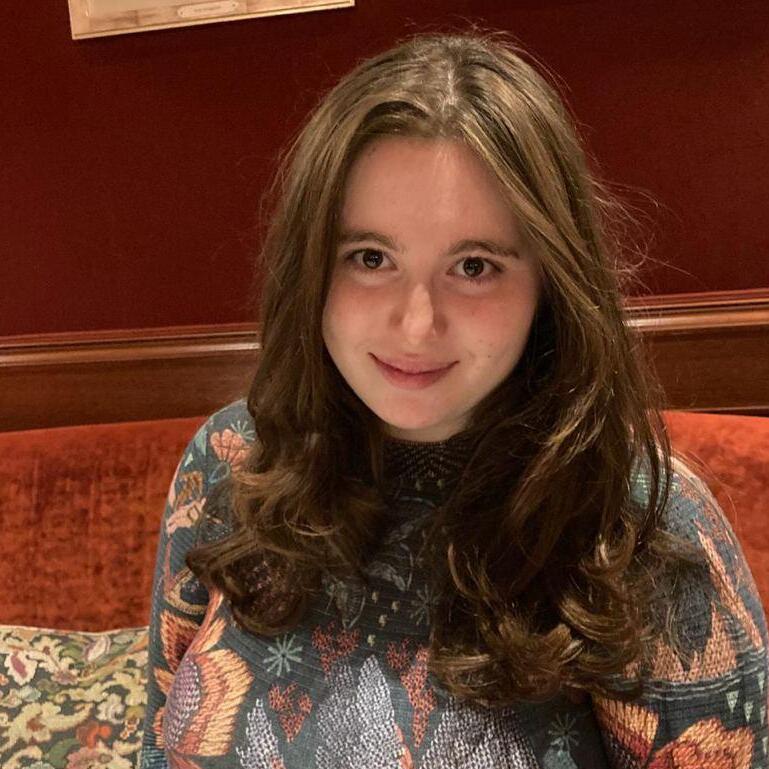Getting your Trinity Audio player ready...
For the first time in its history, Columbia University has elected an Israeli student, 23-year-old Maya Platek, as Columbia student government president for the 2024-2025 school year. This comes amid a wave of pro-Palestinian protests sweeping U.S. campuses, which began at Columbia.
Last week, while the university president was testifying before Congress about a rise in antisemitic incidents on campus since the Gaza war began, a group of pro-Palestinian students erected 50 tents on the main campus lawn. They refused to leave until the university agreed to divest from Israel and companies they claim to support its military actions in Gaza.
When Columbia University President Minouche Shafik returned to campus and her requests for voluntary dispersal were ignored, she decided to call the New York Police Department. The resulting mass arrest of over 100 students produced iconic images that spurred a nationwide movement. These images of police clashing with students would be repeated at various campuses across the United States.
President Shafik faced criticism for not coordinating with the university senate, and the administration announced that it would no longer call police forces. Meanwhile, the encampment still stands.
Platek, set to officially begin her role in May, was chosen by the students despite her clear stance on Israel and the antisemitic protests on campus. "I represent everyone, but it's clear I oppose what's happening here now and think there's a lot the protesters don't understand," Platek, who studies Economics, Political Science and History, told Ynet. "There's no dialogue right now, and I hope we can push for one."
When asked why it all started at Columbia, she explained, "A combination of things. The congressional hearing played a big role. The issue was already hot on campus, and the hearing was a turning point."
Pro-Palestinian protest at Columbia University
(Video: Michael Loubache)
Platek was born to Israeli parents in Japan, moved to Israel after high school, and served in the IDF Spokesperson’s Unit. She credits this experience with shaping her and teaching her the importance of truth. After her military service, she moved to the United States specifically to attend Columbia University.
"I chose this university because I wanted the best education in the world, in the best city in the world—and that hasn’t changed despite everything that is happening now. I am still happy to be studying at Columbia, and I believe there is a lot of room for dialogue, which is what I hope to do in my new role," she said.
Platek had been serving as interim president for several months before the elections, replacing the outgoing chair. "Still, being elected in such times was surprising. But I must say that my identity as an Israeli was not the main consideration in my selection; it was my work, and I hope to represent and protect everyone,” she said.
“I have always wanted to work toward a better future for all, I am not afraid to speak things as they are, and especially this year, I spoke out against antisemitism and anti-Zionism on campus. I will not be silent in the face of injustice, and I hope all people will feel comfortable that I represent them because I am not afraid to speak for anyone."
2 View gallery


Pro-Palestinian protest encampment at Columbia University
(Photo: Stephanie Keith / Getty Images)
Following her election, Platek introduced herself to the student body in a speech. “I am an Israeli rising senior and was recently elected as the Student Body President at Columbia University. As Columbia hits a peak of antisemitism and anti-Zionism, I am honored to have been elected as next year’s Student Body President. More than ever before, it is critical that our voices are heard and our safety is protected,” she said.
"Antisemitism still exists. I want to help Jewish and Israeli students face discrimination, but it's important to me to protect everyone, every group fighting against discrimination.
“I am here to represent everyone at this school. At the end of the day, the issues I fight for are what interest all students, no matter their stance or where they come from. I hope everyone can feel represented through me and that everyone feels free to speak with me."
Her speech, given two months before the unrest began, delivered on the heart of the campus stage, went viral and has garnered over 1.4 million views.
“Our classmates and professors choose to manipulate history in order to demonize us as people have done all throughout history. They choose to rewrite our identity in order to justify terrorist regimes. They choose to join the long list of people who advocated for the destruction of the Jewish people. They choose to celebrate the brutal massacres against the Jewish people. They choose to cheer in our pain and in our suffering. They choose to delegitimize the only Jewish state in the world when there are dozens of Christian and Muslim ones. They choose to advocate for our removal off of this campus over or nationality - that is discrimination,” she said.
Platek also led the call for the dismissal of Prof. Joseph Massad, a Jordanian-Palestinian lecturer in Middle Eastern Studies at Columbia University. The day after the October 7 attack, Massad shared images of the massacre, describing the scene as "stunning" and praised Hamas for "taking control over Israeli settlements."
The issue reached Congress, where President Shafik was questioned during a hearing and stated that the professor had been reprimanded for his remarks. Massad later denied receiving any communication from the administration and continues to teach at the institution.







